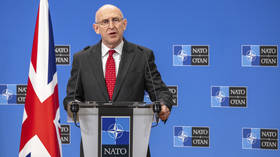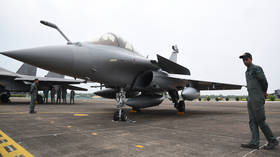Another ceasefire in Gaza? No, thank you
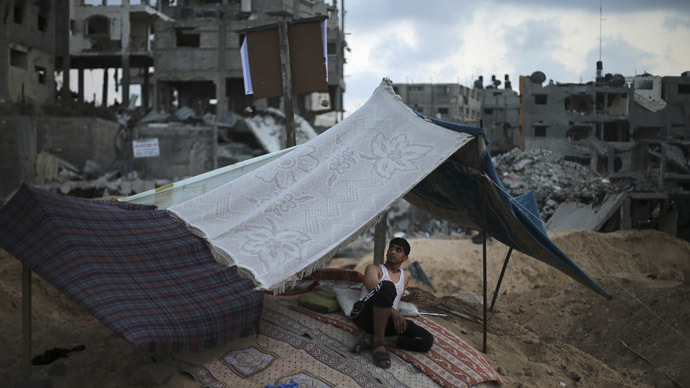
Last week, Palestinians and Israelis agreed to yet another ceasefire of hostilities in the Gaza Strip.
Palestinians appeared triumphant. After more than 2,100 mostly-civilian deaths, tens of thousands injured or displaced and chunks of Gaza buried under rubble, they managed to get Israel to serve up some “concessions.”
Israelis seemed decidedly glum. Only 69 died, but there was no decisive “victory” either, which always rankles with the IDF and makes politicians drop in the polls.
There was more bad news for Israel. The IDF launched a major air and ground military offensives and did not come close to destroying its adversaries’ leadership, organization, military capabilities and alliances. During the seven weeks of brutal attacks against the densely-populated civilian centers, Israel managed to put the Palestinian issue back on the Arab map, draw unprecedented global censure, and give wings to the Boycott, Divestment & Sanctions (BDS) campaign to undermine Israel’s economy. Israel also managed to unify Palestinian political parties across the board – a minor miracle – and make regional heroes out of the “Palestinian Resistance.” With every lash of Israel’s whip, Palestinians found new determination to break the siege of Gaza and end Israel’s occupation.
That’s all well and good, but here’s what needs to be clear: Palestinians did not achieve their goals either.
So then, what’s with all the jubilation over a mere “ceasefire?” When did countless dozens of ceasefires ever end the siege of Gaza or end the occupation? Did ceasefires ever stop Palestinians from getting killed? Did homes and mosques and schools and playgrounds ever get built because of a ceasefire? Did coastal Gaza ever grow lush and rich and free with an Israeli “ceasefire?”
Of course not.
Israel loves ceasefires. It is part of the occupation game. Every so often, Israel flexes its muscles and beats up Gaza. The trigger doesn’t even have to come from Gaza – the place is simply a convenient punching bag and is easily justified by the “Hamas-Terror” language beamed through western media.
The goal is always the same, regardless of what the Israelis publicly claim: To take down Hamas & Company a notch or two; to inflict pain on the population of Gaza in hope that they will turn on their leaders; to cripple Gaza enough to keep Palestinians busy rebuilding lives, but not fighting occupation.
The ideal Gaza attack is short and brutal. The longer it continues, the harder it becomes for Israel to control all the “variables” of conflict, and the more likely it is to “incur loss.” Israeli casualties, surprise Palestinian weapons/tactics, negative publicity…these kinds of things can make a routine exercise of “punishing Gaza” into a public relations disaster for a sitting Israeli prime minister.
So a short-and-brutal Gaza attack is always key.
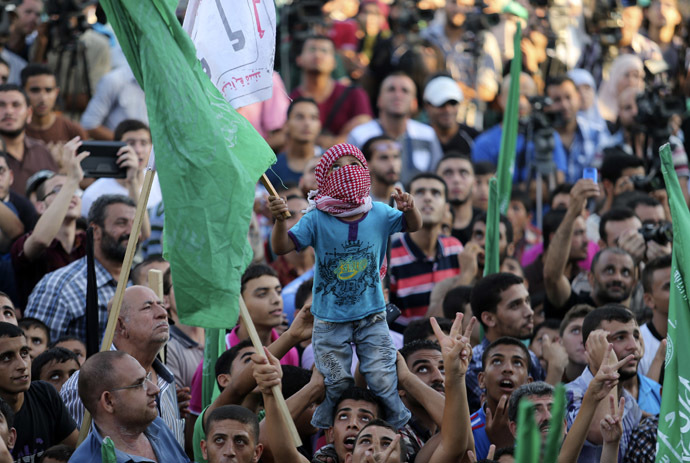
Israel pursues ceasefires from almost the moment it kicks off an assault. Not directly – that would appear weak – but through interested parties that “seek to promote peace.”
And ceasefires they get. Palestinians in Gaza are naturally grateful for the lull in violence, international players pat themselves on the back for doing something about the “Palestinian-Israeli conflict,” and Israelis are satisfied that they have met each and every one of their goals.
Until Israel decides Gaza needs another beating.
Who breaks the ceasefires?
A 2009 study that tracked patterns of violence between Israelis and Palestinians in Gaza over the course of 8 years reveals some astonishing data. Unlike what western mainstream media coverage of the conflict suggests, Israel violates the vast majority of ceasefires by “killing a Palestinian” first.
MIT’s Nancy Kanwisher, Princeton University’s Johannes Haushofer and Tel Aviv University’s Anat Biletzki concluded the following in their exhaustive study:
“It is overwhelmingly Israel that kills first after a pause in the conflict: 79 percent of all conflict pauses were interrupted when Israel killed a Palestinian, while only 8 percent were interrupted by Palestinian attacks (the remaining 13 percent were interrupted by both sides on the same day). In addition, we found that this pattern — in which Israel is more likely than Palestine to kill first after a conflict pause — becomes more pronounced for longer conflict pauses. Indeed, of the 25 periods of nonviolence lasting longer than a week, Israel unilaterally interrupted 24, or 96 percent, and it unilaterally interrupted 100 percent of the 14 periods of nonviolence lasting longer than 9 days.”
In short, Israel can’t sit still when things are calm in Gaza for too long.
The study also manages to debunk a widespread Israeli myth about its need to retaliate against “Palestinian rockets.” The researchers amassed precise quantitative data from the IDF and Israeli human rights group B’Tselem on the numbers of Qassam rockets fired between January 2001 and April 2008: “3,645 Qassam rockets fired, but only 15 associated fatalities.”
The researchers then tracked Israeli actions before and after the rocket firings in order to ascertain if their reactions were retaliatory or not (the study tracks the same behaviors for Palestinians).
Seven years of data demonstrates that “Israeli military actions against Palestinians may lead to escalation of violence rather than incapacitation of Palestinian military operations against Israel.” In other words, Israel knows full well that attacks on Palestinians results in “escalation” of conflict.
The report arrives at a startling conclusion after examining the data patterns:
“If prevention of attacks was the main reason for Israeli attacks, one would expect Israeli killings of Palestinians to occur not only before but also after rocket attacks; in fact, one might argue that killings of Palestinians by Israel should increase strongly following rocket attacks, reflecting Israeli operations to shut down the cells that were responsible for the attacks. However, we find that killings of Palestinians by Israel do not in fact increase significantly following rocket attacks. This result suggests that the killings of Palestinians by Israel preceding rocket attacks are usually not preventative measures to suppress rocket attacks.”
If no ceasefire, then what?
Israel has managed to create a conflict-within-a-conflict: all eyes are on Gaza’s next ceasefire, not on ending the occupation. The terms of most of these ceasefires are violated, either immediately or shortly thereafter. After the last major escalation in November 2012, the ceasefire deal was never implemented. There was simply no mechanism for enforcing the agreement, and there never will be one. It is like the Oslo Agreement – a never-ending “process” that doesn’t ever outline the end game, but leaves things up to “further discussion.”
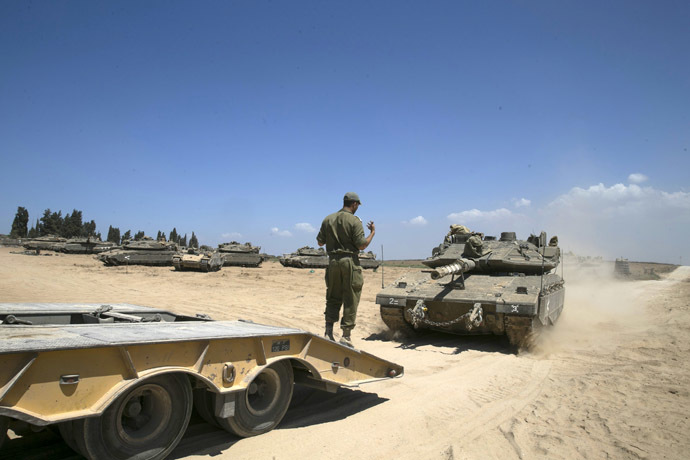
Israel has also cleverly managed to limit its military theater to Gaza. No more battling across borders with Arab states; no more “Intifadas” in the West Bank and East Jerusalem. Israel today has managed to not only physically “Balkanize” Palestinian territories, but also to mentally Balkanize them.
Palestinians are the only ones that can break the occupation and force an end-game, but this will not come about playing by Israel’s rules. Gaza may be the last battlefield, but it is a powerful one. Israel loses every single day it fights with Palestinians – each day brings undeterminable risk to the entire colonial enterprise that is the “Jewish State.”
Palestinian-born Adnan Abu Odeh, a trustee of the International Crisis Group (ICG) and former Jordanian minister, senator and chief of the royal court to King Hussein, framed it this way last week:
“Israel’s locomotive is Zionism. The issue with Israel’s conflicts with Gaza and with southern Lebanon is not about how many Israelis were killed. The issue to them is deeper. Israel is based on two things: bringing Jews from all over world to Israel (Aliyah) and keeping Jews there. Gaza and Lebanon hurt them this way – Jews who want to immigrate to Israel will hesitate. And those already there, they are thinking whether they made a mistake. This is a strike at the core of Zionism.”
Beating up on Gaza periodically is one way of allaying Jewish fears. “See, we are strong, we are masterful, we have this Iron Dome.”
But to see Gaza unbowed after 50 days of conflict – the missile capabilities of Palestinian Resistance undiminished, irrespective of “targeted” Israeli operations… That makes Israelis think twice.
What if Palestinians in Gaza did not cease fire? What if nobody and nothing could halt Palestinian outrage and determination to battle through? What if all “concessions”’ were rejected and only a total and immediate end to Israel’s occupation would stop the fight?
What would Israel do? Would it kill every Palestinian in Gaza? Could it bomb any more schools than it already has? When Palestinians inside Gaza swear allegiance to “Resistance” more than Palestinians outside, who has the right to thwart that spirit?
Israel is built on a narrative of persecution and genocide. There is a point at which killing Palestinians triggers vastly “diminishing returns” and we started seeing that as Palestinian casualties rose toward a horrifying new threshold of 2,000 deaths, and the term “genocide” started to be commonly used in relation to Israel’s behavior.
But when the Palestinian Resistance accepted Tel Aviv’s latest ceasefire, it took that tally down to zero. Next time around, the international community starts counting at “0” and Israel knows full well that it has conditioned people to tolerate a 1,000-2,000 casualty “result.”
The question is: can Gaza afford to stop fighting until it affects fundamental change in Israel’s behavior – until it establishes “deterrence” against further attack or halts the occupation? I think not. The biggest mistake Palestinians made with the first and second Intifadas was halting them and making “deals.”
Israel’s greatest fear is that Palestinians will break out of the ordered processes and patterns set up to control them. That would mean NOT accepting a deal; not participating in the ceasefire game. It also means – and this is crucial – rejecting Oslo, dismantling the compliant Palestinian Authority, reinstating the inclusive PLO as the “sole legitimate representatives of the Palestinian people.”
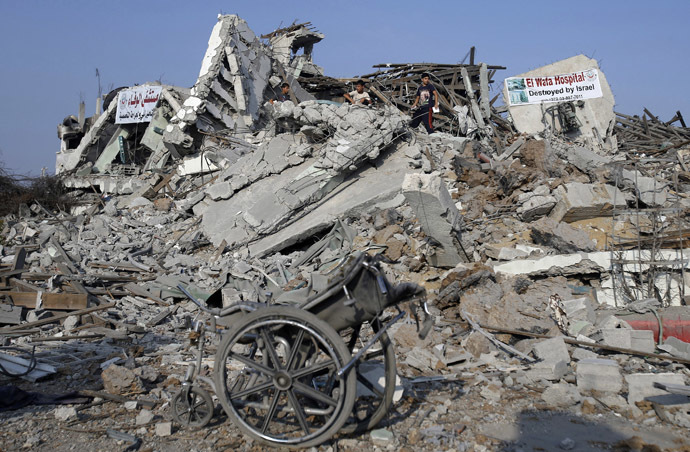
Moreover, it means embracing armed resistance against Israel as a tenet of the struggle against occupation. You need the “stick” to make the “carrot” more palatable– an obvious tactic that somehow manages to elude the “well-behaved natives” that head the PA.
Five days after the latest ceasefire went into effect, Israel announced its biggest land-grab in 30 years, from five Palestinian villages in the West Bank.
On the same day, Israel began its game of unraveling ceasefire “concessions” by insisting on more “process.” A key ceasefire deal term was to allow Palestinians to import building materials to help rebuild the devastation in Gaza. After 50 days of negotiations, Tel Aviv now insists a “bilateral committee” be established to oversee this process, consisting of Israel, the PA and the UN? This post-deal demand, the Israelis know, means that All Things will perpetually be tied up in “discussions.”
Ceasefire? Please.
Israel and its western/Arab allies have a goal. They plan to dismantle the Palestinian Resistance in this last Gaza battlefield. To do that, they will carefully begin to insert their PA partners into all aspects of Gaza’s administration. We will see more initiatives like this after US Secretary of State John Kerry’s upcoming visit to the region. His Saudi and Egyptian partners are on board. Israel will lead this game.
What should Gaza do? It should beef up its existing alliances and continue stockpiling its weapons arsenal. Israel must continue to endure losses, experience pain, and watch its citizens flee the “unpredictability” – take their second passports and leave. There is absolutely no other way forward – none whatsoever.
Palestinians will never have political chips worth a dime in negotiations with a right-wing Israeli administration unless they can affect the “Aliyah” of Jews to Israel.
Ceasefire? A hollow victory indeed.
The statements, views and opinions expressed in this column are solely those of the author and do not necessarily represent those of RT.
The statements, views and opinions expressed in this column are solely those of the author and do not necessarily represent those of RT.







